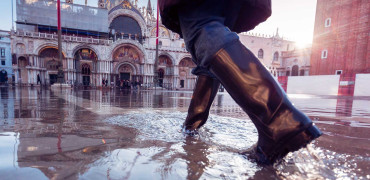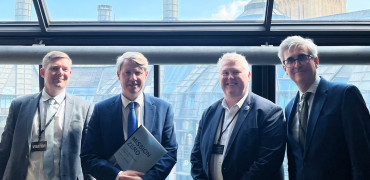The effect of continuous improvement in HVAC manufacturing (part 2):
At Mitsubishi Electric, we are starting an M&E campaign this month around the topics of experience, expertise and capability. We are focusing on what’s unique to Mitsubishi Electric and why an M&E should choose to work with someone who has over a Century’s experience of quality and innovation.
At the November COP28 Climate Change conference, the UN’s Climate Change Executive Secretary, Simon Stiell highlighted the need for rapid action, urging delegates: “Accelerate climate action. Teach it to run.”
Going faster on sustainability is a challenge that the built environment must meet. It is frustrating to see the government taking its foot off the accelerator with delays to higher EPC standards for homes and non-dwellings. However, commercial clients are still pushing for more sustainable and energy-efficient buildings even without this legislative push.
The growing popularity of schemes such as NABERS and the continued application of long-standing certification programmes such as BREEAM are testament to the importance of demonstrating sustainability in buildings.
We can’t rely on products alone to deliver sustainable buildings. We need innovative thinking too
A commitment to low carbon
The increasing focus on building embodied and operational carbon (check our guides to these issues here) is also critical for everyone involved in the design, construction and operation of buildings.
As a manufacturer, Mitsubishi Electric takes its contribution to a low-carbon future very seriously. Globally, we have set a target of Net Zero greenhouse gas emissions in our entire value chain by 2050. There is an interim target of a 50% reduction in our factories and offices by 2030 (against 2013 figures).
HVAC systems are significant contributors to building sustainability, and to this end we have been designing our equipment with lower embodied and operational carbon in mind for many years now.
The footprint of your equipment
Specifiers are now looking beyond the energy performance of HVAC equipment to consider the carbon footprint of each chiller, VRF unit and heat pump.
We have responded to these requirements through innovation and continuous improvement. A recent example is Mitsubishi Electric’s introduction of ultra-low GWP refrigerants such as CO2 and R290 into our portfolio of products.
The irony of innovation is that it isn’t quick – it takes decades to develop a pipeline of products that will meet future legislation on the use of F gases, for example.
Moreover, we can’t rely on products alone to deliver sustainable buildings. We need innovative thinking too.
That’s why Mitsubishi Electric has brought together a Sustainability and Construction team to help clients take a holistic approach to the design and delivery of HVAC systems, right from stage one.
Our Sustainability and Construction team is unique in the industry. They offer the ability to share and discuss your target project outcomes with knowledgeable, experienced building services professionals who can provide advice and input on how you could achieve Net Zero targets.
Demonstrating your credentials
Because sustainability involves the whole supply chain working together toward this goal, Mitsubishi Electric has also introduced a Committed Carbon Reduction Partner (CCRP) scheme to support contractors in reducing their carbon emissions – and demonstrating those credentials to their customers.
The drive for sustainable buildings offers real opportunities for the HVAC sector.
The switch away from fossil-fuel heating systems is one example that could see a revolution in heating and hot water for homes and other buildings.
But our industry also has a responsibility to educate our customers (domestic and commercial) about the new technologies they are using, whether that’s reassuring them about the use of R290, or explaining how a heat pump differs from a boiler.
Ensuring you’re informed about the products and what they can achieve will be equally important as delivering and installing them.
As the UN COP calls for faster work on reducing carbon emissions, Mitsubishi Electric sees this as an opportunity to bring our experience, expertise and capability to work with clients, partners and industry organisations to deliver innovative solutions with successful outcomes for all.
Dave Archer is Business Manager - Influenced Sales




